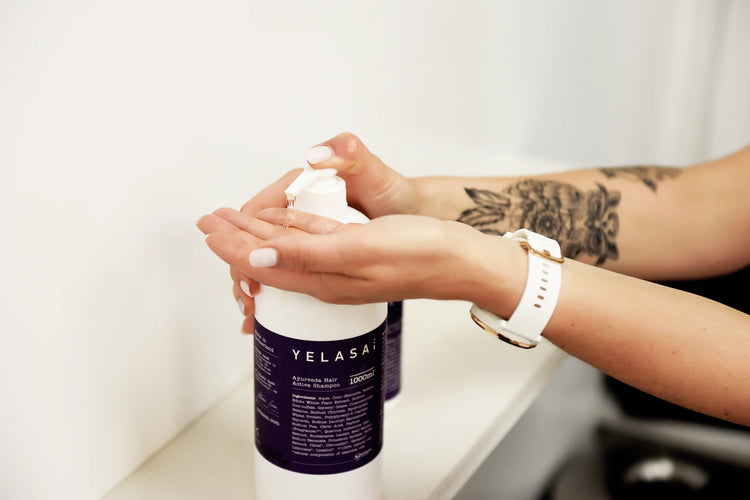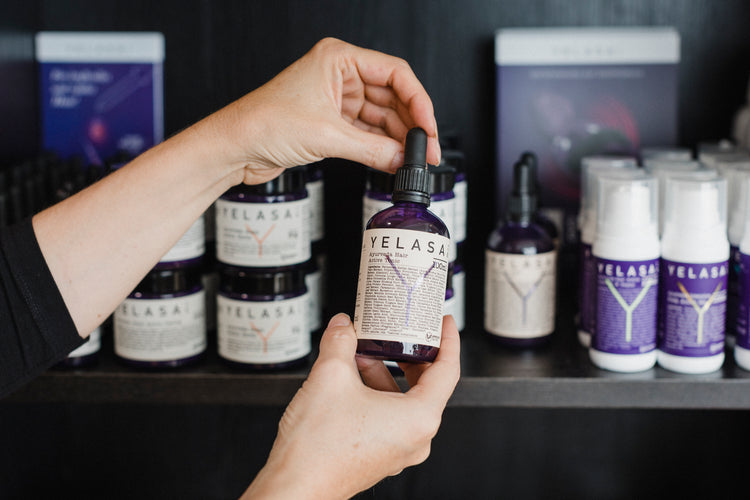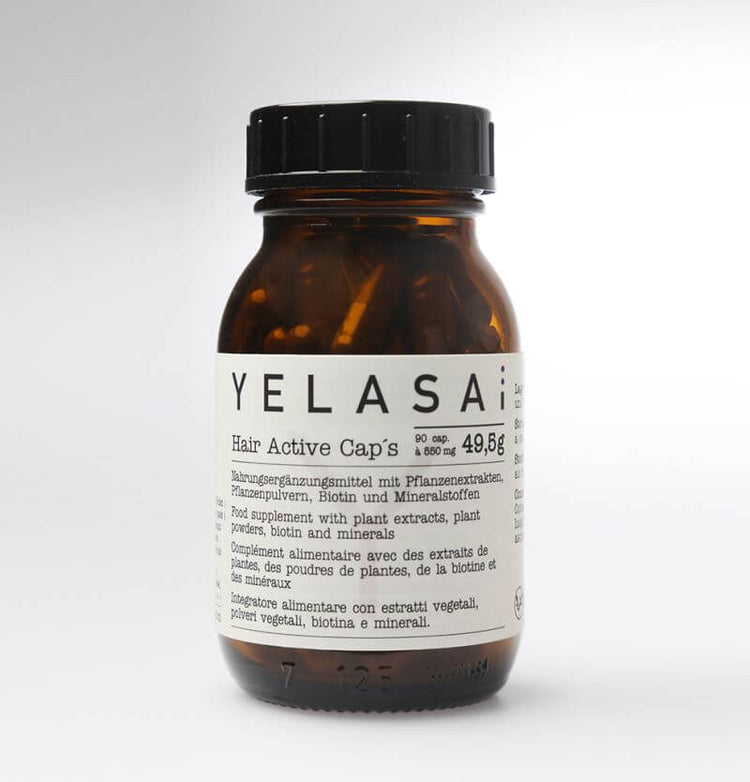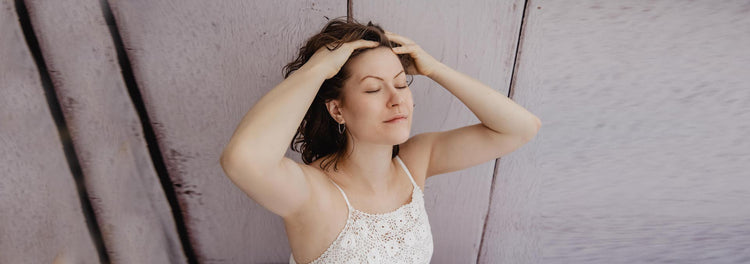Targeted reduction of baby hair loss in:
Hormonal changes
Infections or skin diseases
Bald, partially patchy and circular areas on the scalp due to illness
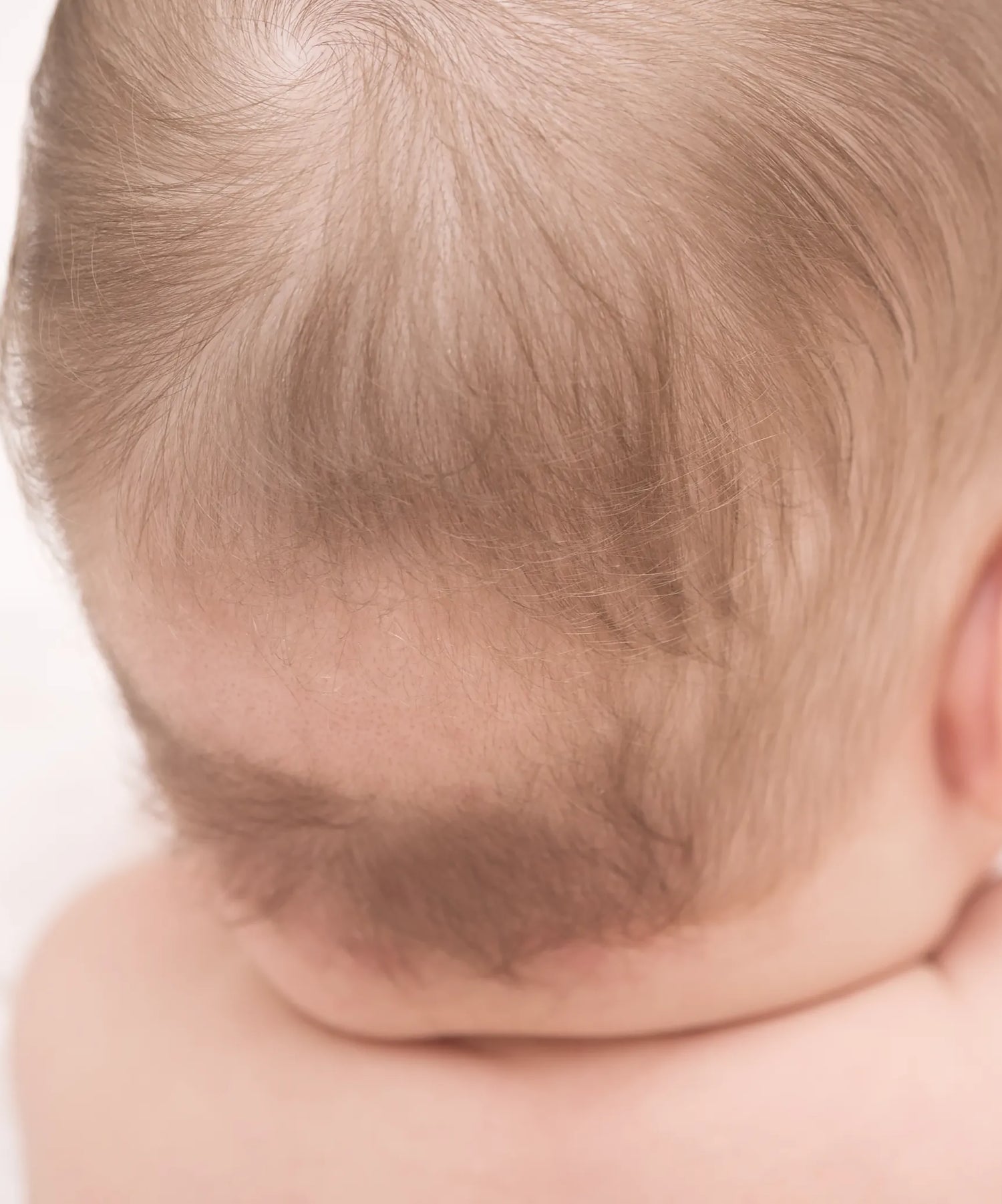
Hair loss: nothing to worry about
When the first receding hairline appears and the hair on the top and back of the head begins to thin, for many men this is initially associated with a deep crisis of self-confidence. From now on, many live with the constant fear that hair loss will continue to progress. Those affected should therefore react early and seek professional support.
The earlier you start activating hair growth, the faster and easier it will work.
Causes of hair loss in babies
Hormonal changes
Hormonal changes are one of the most common reasons why baby hair falls out. During pregnancy, fetuses receive maternal hormones that promote hair growth. However, after birth, hormone levels drop abruptly again, which can lead to temporary hair loss. This hair loss affects around 30% of babies and usually occurs in the first six months after birth.
However, there are also rare hormonal disorders that can cause persistent hair loss in babies. These include, for example, "Congenital Adrenal Hyperplasia" (CAH), which leads to an overproduction of androgens. Androgens are male hormones that are also found in girls. An excess of androgens can impair hair growth and lead to hair loss.
Another hormonal disorder called "hypothyroidism" can also be the cause of hair loss. This is an underactive thyroid that leads to a deficiency of thyroid hormones. Thyroid hormones are important for hair growth, which is why a deficiency can lead to hair loss. A hair growth specialist can provide information and, through competent care advice, offer different application options to promote hair growth.
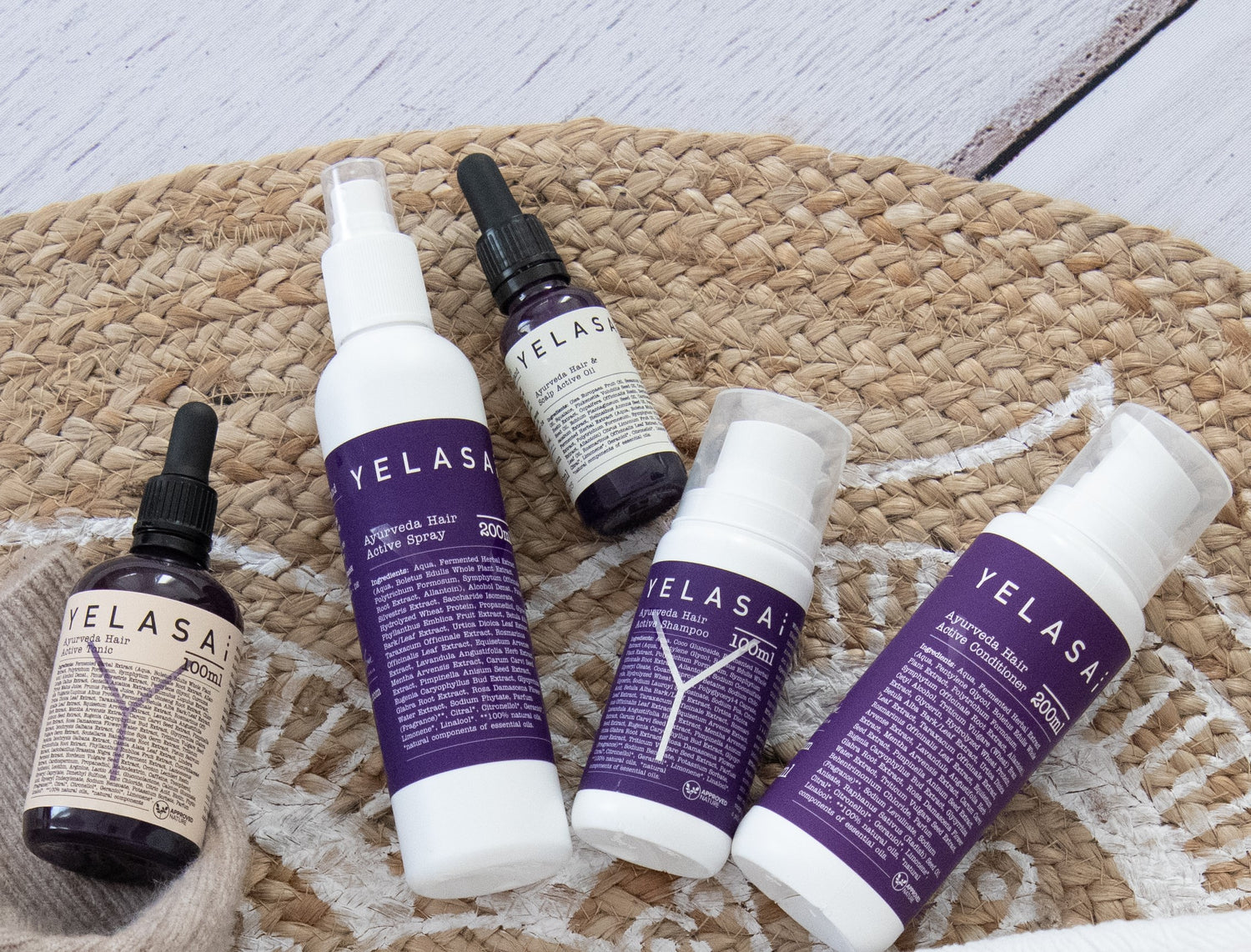
- Regular price
-
CHF 29.00 - Regular price
-
CHF 0.00 - Selling price
-
CHF 29.00
- Regular price
-
CHF 44.00 - Regular price
-
CHF 0.00 - Selling price
-
CHF 44.00
- Regular price
-
CHF 25.00 - Regular price
-
CHF 0.00 - Selling price
-
CHF 25.00
- Regular price
-
CHF 29.00 - Regular price
-
CHF 0.00 - Selling price
-
CHF 29.00
- Regular price
-
CHF 127.00 - Regular price
-
CHF 0.00 - Selling price
-
CHF 127.00
Most popular products for baby hair loss
For hair loss in babies
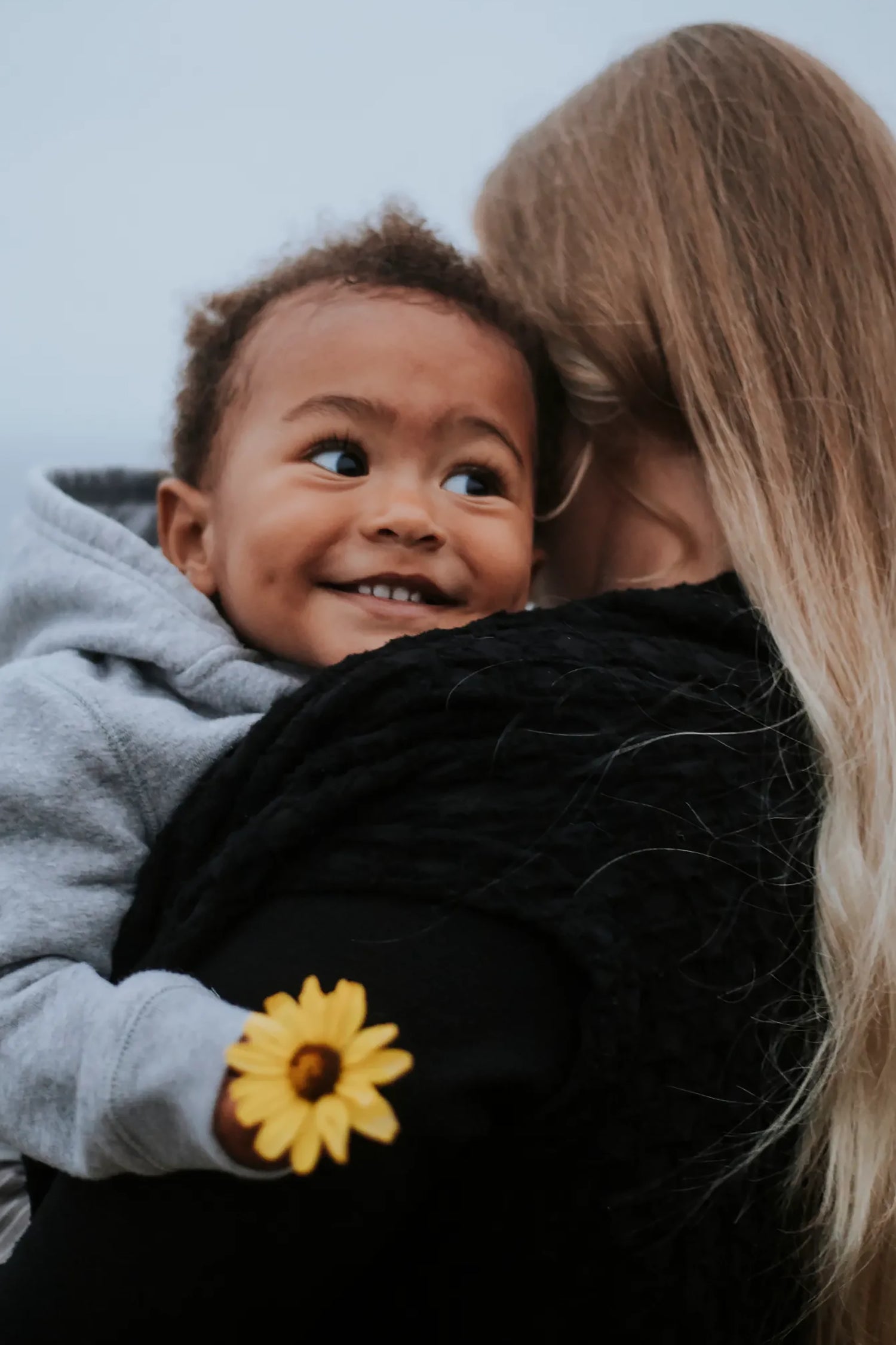
Friction from clothing or bedding
When babies lie or sleep on one side for a long time, there is friction on the scalp. This can cause temporary hair loss called “positional alopecia.” Hair loss usually occurs on the back of the head. In some cases, it can also affect other areas where pressure or friction is applied to the hair. However, the hair in these areas usually grows back as soon as the pressure or friction on the hair is reduced.
To avoid positional alopecia, parents should ensure that babies change their sleeping positions regularly and do not lie on one side for too long. In addition, the baby's clothes and bedding should be made of soft materials and not have rough spots that can damage the hair. If the bald spot on the back of your head does not go away on its own, we recommend contacting a hair growth specialist in your area .
Infections or skin diseases
A common cause of hair loss in babies is the so-called "cradle cap" or "head gneiss". This is a harmless but unpleasant condition caused by excessive sebum production on the scalp. The affected area may be red and scaly and lead to hair loss. But this is completely harmless as it usually disappears on its own within a few months.
Likewise, a fungal infection of the scalp, called tinea capitis, can affect your baby's hair. In rare cases, hair loss in babies can also be a symptom of an autoimmune disease, such as alopecia areata. Even a baby's scalp should be actively cared for early on; it is recommended to consult a hair expert in your region. Even the simplest care treatments can often stimulate hair growth.
Malnutrition or vitamin deficiencies
A deficiency of iron, zinc or vitamin D can affect the baby's hair growth and lead to hair loss. Insufficient intake of vitamins and minerals can also cause hair to become brittle and brittle. Therefore, a balanced diet is essential to promote baby's hair growth.
Breast milk generally contains sufficient nutrients. However, if the baby is formula-fed, it is important to ensure that the milk formula contains all the necessary nutrients.
In rare cases, however, it can also be an indication of a metabolic disorder. Such a disorder is called "biotinidase deficiency" and can result in babies not being able to absorb enough biotin. Biotin is an important nutrient that is essential for hair growth and hair health. If this nutrient is missing, hair loss in the baby can occur. If you are unsure whether a metabolic disorder is responsible for your baby's hair loss, we recommend that you consult a specialist. In addition, we recommend caring for your baby's scalp with an active yet very gentle approach. For more information, contact a hair growth specialist in your area.
Prevention and care of baby hair loss
Hair loss in babies is a common problem that worries many parents. Fortunately, there are steps parents can take to prevent and care for hair loss in their babies.
Good nutritional habits for healthy hair growth
For healthy hair growth, babies should be fed a balanced diet rich in nutrients such as iron, zinc, vitamins A, C and E. Breast milk or formula is usually sufficient to provide these nutrients. It is recommended that babies start introducing solid foods from the age of six months to ensure they are getting all the nutrients they need. It is also important that babies receive enough fluids to keep their scalp hydrated.
Gently combing and brushing the hair
Gently combing and brushing your hair can also promote hair growth. Use a soft baby brush made of goat hair. Make sure your baby's hair is dry to avoid tangles. It is also recommended to use a natural scalp oil to support hair growth.
Avoid friction through soft clothing and bedding
Babies have sensitive skin, so it is important to choose clothes made from soft materials such as cotton that are not too coarse and will not irritate the scalp. Bedding made from soft fabrics such as bamboo or satin is also preferred to minimize skin irritation. In addition, parents should consciously encourage the baby to switch sides to avoid the baby lying with its head in the same place for a long time.
Regular removal of cradle cap
Many children suffer from cradle cap, which should not linger on the scalp for too long. However, most parents wait until their child is 4 or 5 years old to take action. However, this is not ideal as cradle cap can promote bacteria that can later lead to hair loss. To counteract this, it is advisable not to wait too long before removing the scabs. Our recommendation here is to care with the Hair & Scalp Oil . Apply the oil to your baby's scalp about ten minutes before washing your hair and then wash it out with the Hair Active Shampoo . If parents repeat this measure every time they wash their hair, the cradle cap can be removed in no time. In this way, you promote an optimal scalp environment for vital hair growth in your baby.
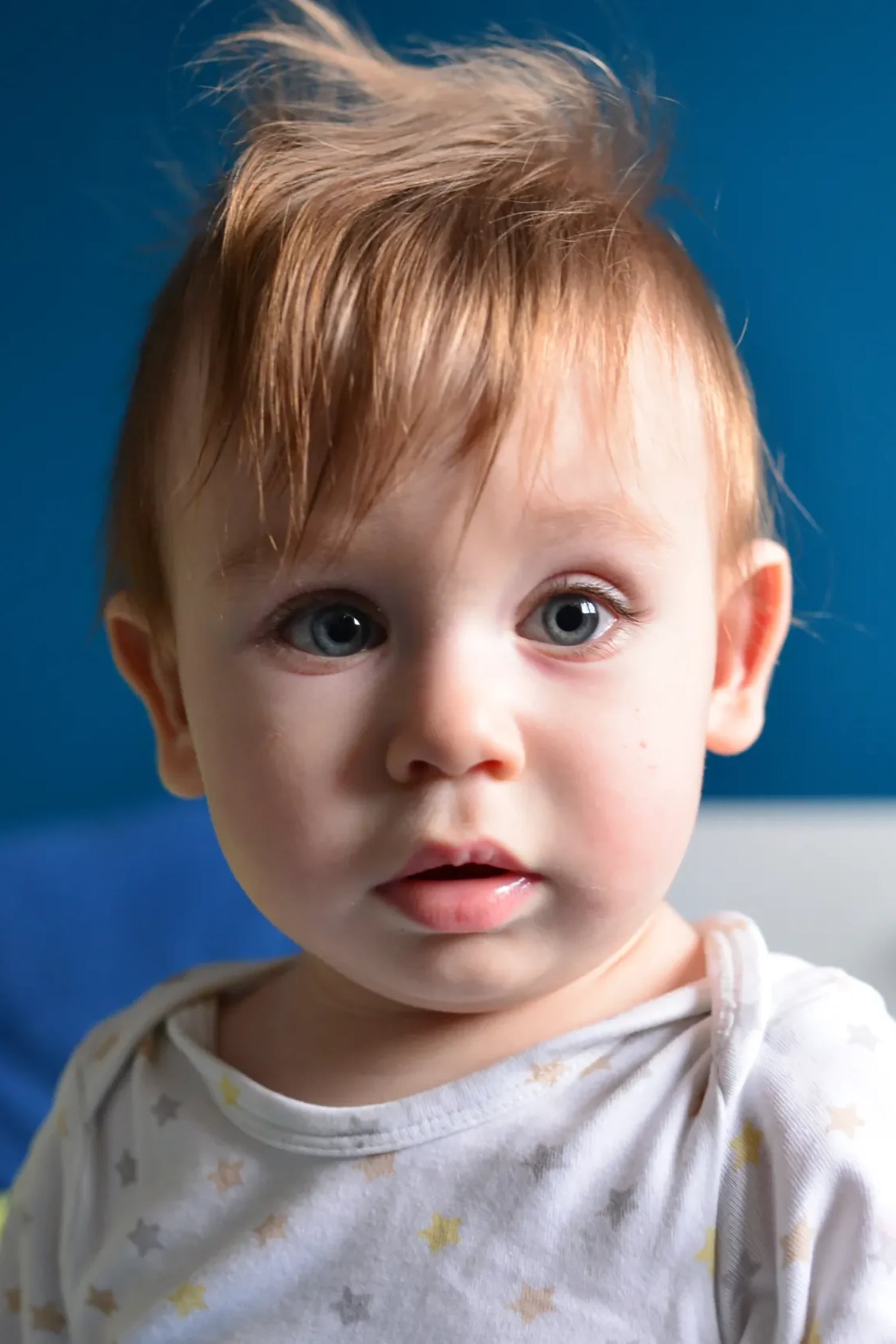
Use of mild baby shampoos
Baby hair loss prevention and care is an important aspect of maintaining the health and growth of the baby's hair. An effective method is to use mild baby shampoos. These specially formulated shampoos gently cleanse baby's sensitive scalp without irritating or drying it out. They gently remove dirt and oil, promote a healthy scalp and support hair growth. Our Ayurveda Hair Active Shampoo is ideal for babies as it gently cleanses the baby's sensitive scalp while supporting a balanced scalp environment and thereby promoting natural hair growth.
Why do we recommend YELASAI hair care products for your baby?
YELASAI has the perfect combination for the ultimate hair care even for baby hair loss. We only use natural and carefully selected ingredients, which are supplemented by natural, fermented herbs. Unlike many other products on the market, YELASAI products contain no synthetic fragrances, colors, flavors and preservatives, no petroleum products such as paraffin and mineral oil, no parabens, silicones and no PEG, no hormones and no nanoparticles or microplastics. Our method for caring for the scalp and hair is based on the findings of Ayurvedic teachings and benefits from the most modern developments of our time. This means that our care products are also ideal for your baby's sensitive scalp.
Home remedies and natural methods to promote your baby's hair growth
Using home remedies to promote hair growth in babies can be a good addition to support hair growth. One option is to apply coconut oil to the scalp and massage gently. Organic coconut oil contains fatty acids that strengthen hair and promote its growth. Another alternative is to use aloe vera. The gel from the aloe vera plant soothes the scalp and stimulates hair growth at the same time. Applying the gel to the scalp is a simple way to promote hair growth and is completely natural and therefore not harmful to your baby. Another option is to use organic onion juice. Apply the juice to the scalp and leave it on for about 30 minutes before rinsing it out. Applying organic egg yolk to the scalp can also help, as the organic egg yolk contains proteins and vitamins that can promote hair growth. You can apply it to your baby's scalp and massage gently. If you are unsure whether home remedies are suitable for your baby, it is recommended to arrange a visit to the doctor.







